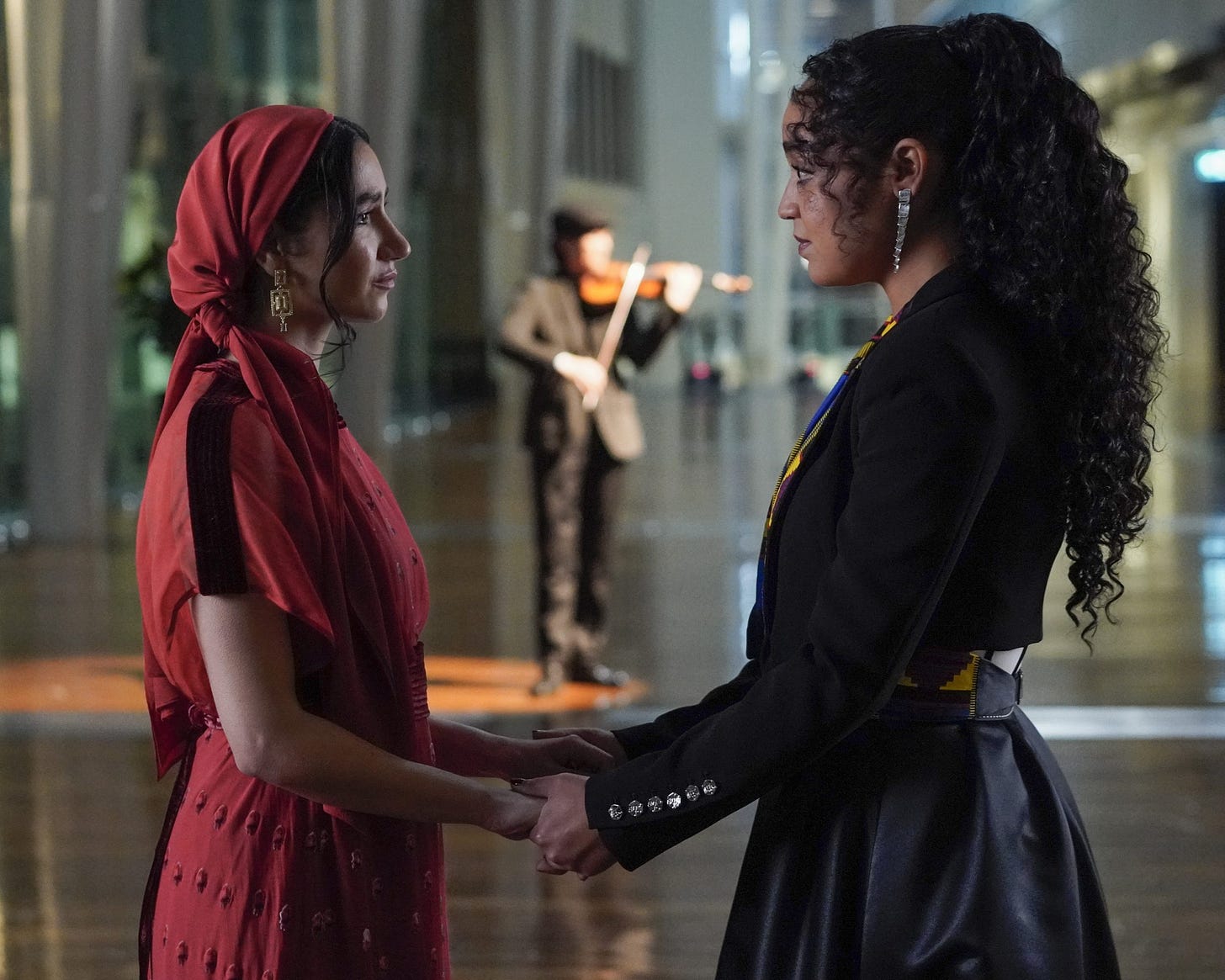When it Comes to TV Diversity, Are We Going Backwards?
I wrote about the state of the writers' guild a year after their historic strike. What I learned was dismaying, but not all the surprising.
I started this newsletter because I was so excited and invigorated by the wealth of diverse content that exploded onto our screens amid the streaming boom, kicked off by the modern masterpiece “Orange Is The New Black.” After the first election of Donald Trump, 2017 was all about the #resistance. Networks were explicitly shifting their slate of programming towards uplifting stories of people of color, LGBTQ+ and disabled communities against the onslaught of hateful rhetoric and policies from the administration. This was the age of #MeToo and then #BlackLivesMatter, and shows from “Good Trouble” to “I May Destroy You” tackled issues like sexual assault and police violence against Black men. There was a righteousness to much of this content that made my little social justice-minded heart bleed. Some criticized these kinds of shows as too partisan or in some cases, clumsy, and sometimes they were. But I felt that, even in the middle of the nightmare Trump presidency, it showed us that maybe there was a glimmer of political hope to be had for the next generation.
Last week while fighting off a nasty cold (test for Covid, everyone!), I rewatched the first few seasons of “The Bold Type,” and even though it only came out in 2017, it felt so outdated now. The idea of a Women’s March now sounds almost laughable. Roe v. Wade was overturned. We’ve been defeated. Seeing the rah-rah girlboss feminism of that show again made me feel such a strong sense of dissonance.
Comparing the kind of content that was promoted during the first Trump administration versus now feels like a microcosm of a broader cultural shift. This time, Trump’s win feels different. Rather than resist or speak out, the industry is falling in line. Corporations of course swing with the pendulum of economics, not values, and a second Trump win makes the rightward shift seem like not an aberration but the norm, and that green-lighting the sort of content his supporters might approve of will make them more money. This even though “Queen Charlotte: A Bridgerton Story” and “Beef,” both with POC leads and creators, were among the most popular shows last year, according to a recent study from UCLA.
But even among people who disagree with what’s happening, there’s an apathy and exhaustion that’s set in against the backdrop of the pandemic, the Trump years, and the disappointments and heartbreaks of the current administration. Millennials and Gen Z have grown up through crisis after crisis, in an age where making a decent living doing a decent job— like television writing, for example— is more difficult than ever.
Amid a downturn, Hollywood is awash in the same kind of anti-DEI sentiment and anti-affirmative action discourse the country is, just like conservatives want. This backlash was a major theme in my most recent article for Prism Reports, an update on the state of the Writers Guild of America and the television industry a year after the strikes. Going in, I expected some quotes on the ongoing downturn and challenges that writers are facing finding work, as well as the gains from the strike. And some of it was that.
But my interview with Y. Shireen Razack got me thinking more deeply about how much politics extends into entertainment. And of course, I believe strongly in the power of entertainment to influence political awareness and engagement — such as in the case of “Orange Is The New Black,” which educated millions on the horrors of mass incarceration who otherwise may not have learned about it. But the industry, just like so many news organizations and lawmakers and even the public, seems ready to lie on the tracks ahead of the coming train.
As Razack told me:
“During his first term … there was a reaction from the industry where we were putting out content that was not just more diverse, but more politically charged.”
“I hope that the industry reacts to this moment in time the way that they reacted before and that they stand up and try to tell the stories and change hearts and minds. …Right now, it just feels like we’re going back.”
The WGA, at least, seems prepared to fight off the incursions of the coming Trump administration, judging by a letter they sent to union members after the election, letting them know that leadership is ready to stand up for labor rights should they be threatened. With the coming onslaught, it’s hard to not want to close our eyes.



